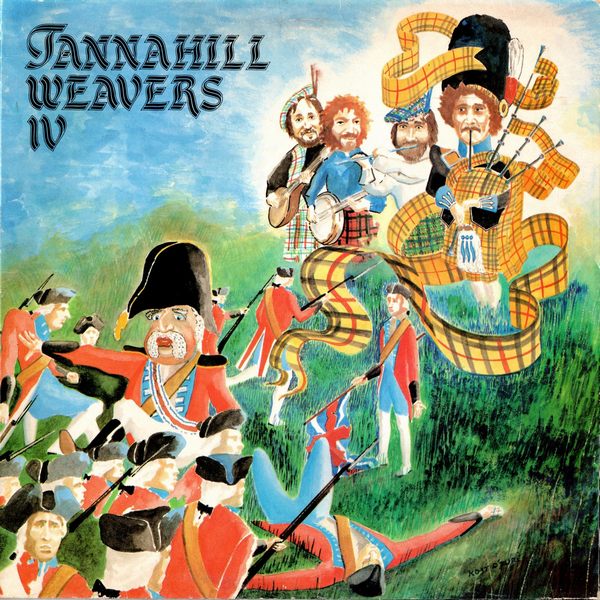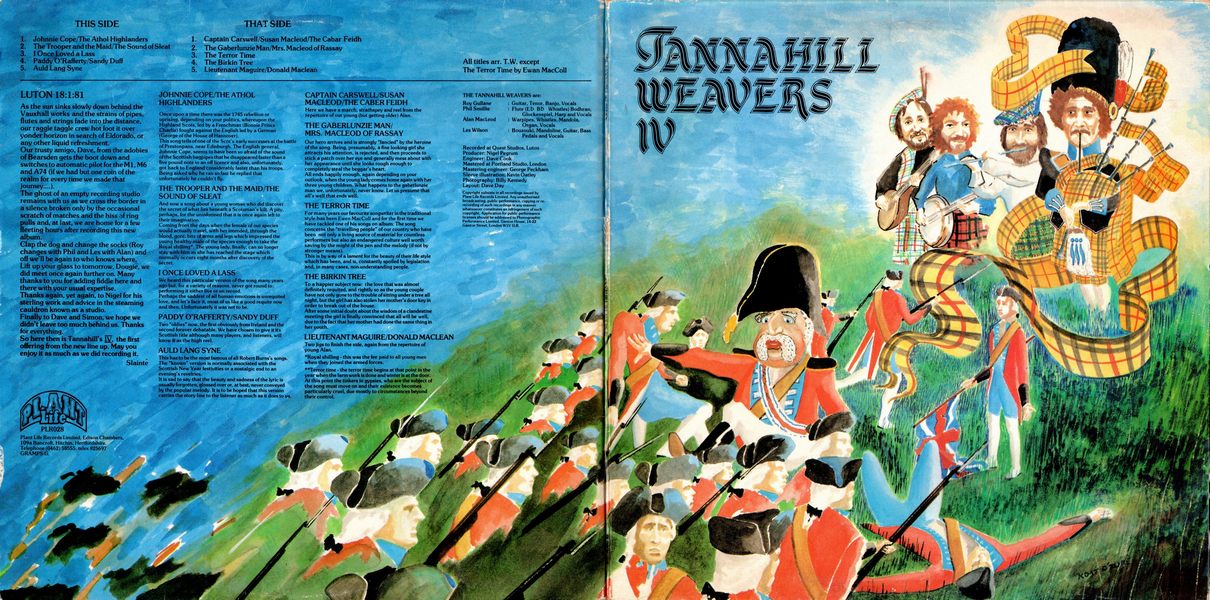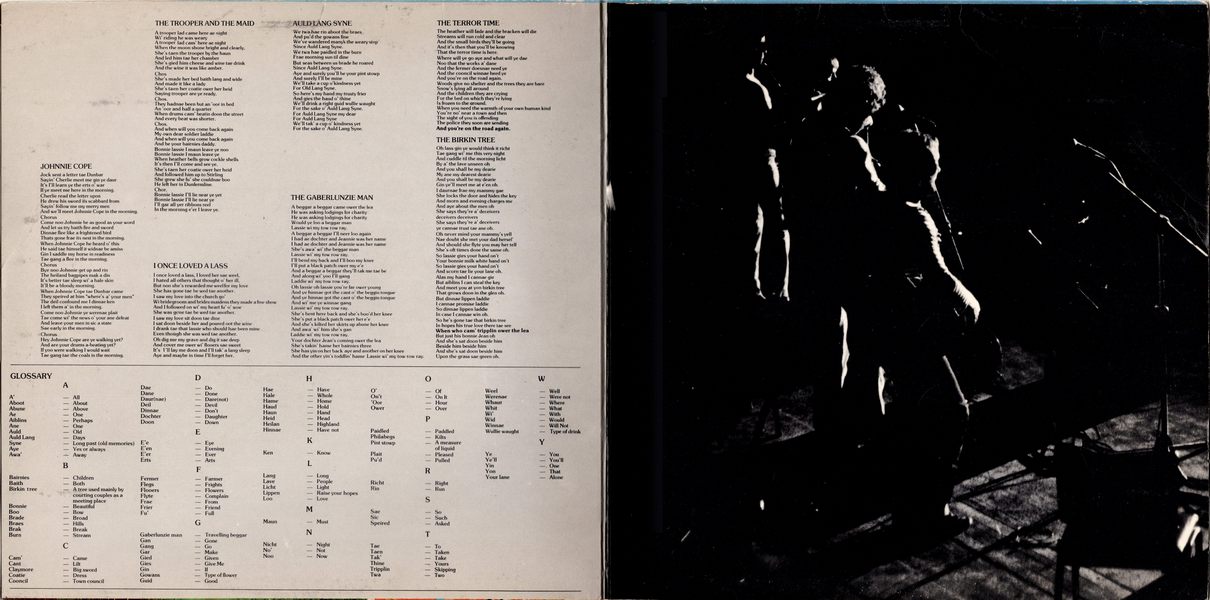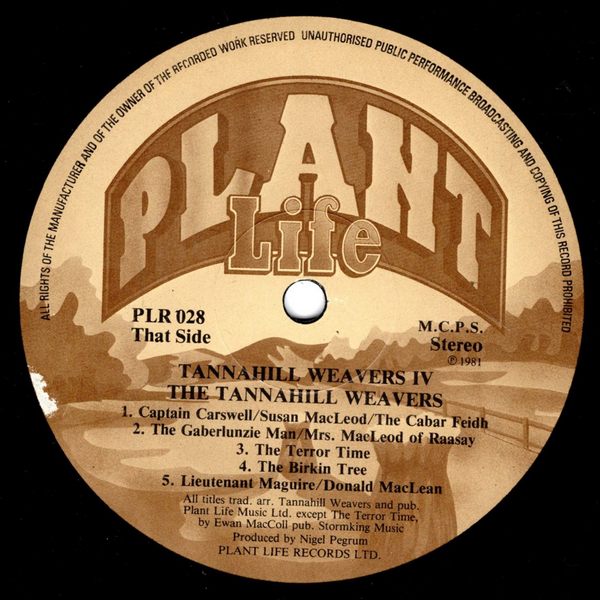

 |


|


|
Sleeve Notes
LUTON 18:1:81
As the sun sinks slowly behind the Vauxhall works and the strains of pipes, flutes and strings fade into the distance, our raggle taggle crew hot foot it over yonder horizon in search of Eldorado, or any other liquid refreshment.
Our trusty amigo, Dave, from the adobies of Bearsden, gets the boot down and switches to automatic pilot for the M1, M6 and A74 (if we had but one coin of the realm for evey time we made that journey…)
The ghost of an empty recording studio remains with us as we cross the border in a silence broken only by the occasional scratch of matches and the hiss of ring pulls and, at last, we are home for a few fleeting hours after recording this new album.
Clap the dog and change the socks (Roy changes with Phil and Les with Alan) and off we'll be again to who knows where. Lift up your glass to tomorrow, Dougie, we did meet once again further on. Many thanks to you for adding fiddle here and there with your usual expertise.
Thanks again, yet again, to Nigel for his sterling work and advice in the steaming cauldron known as a studio. Finally to Dave and Simon, we hope we didn't leave too much behind us. Thanks for everything.
So here then is Tannahill's IV, the first offering from the new line up. May you enjoy listening to it as much as we did recording it.
Slainté
Johnnie Cope & The Athol Highlanders — Once upon a time there was the 1745 rebellion or uprising, depending on your politics, whereupon the Highland Scots, led by a Frenchman (Bonnie Prince Charlie) fought against the English led by a German (George of the House of Hannover).
This song tells of one of the Scot's early successes at the battle of Prestonpans, near Edinburgh. The English general, Johnnie Cope, seems to have been so afraid of the sound of the Scottish bagpipes that he disappeared faster than a five pound note in an off licence and also, unfortunately, got back to England considerably faster than his troops. Being asked why he ran so fast he replied that unfortunately he couldn't fly.
The Trooper And The Maid & The Sound Of Sleat — And now a song about a young woman who did discover the secret of what lies beneath a Scotsman's kilt. A pity, perhaps, for the uninformed that it is once again left to their imagination.
Coming from the days when the female of our species would actually travel, with her intended, through the blood, gore, bits of arms and legs which impressed the young healthy male of the species enough to take the Royal shilling*. The young lady, finally, can no longer stay with him as she has reached the stage which normally occurs eight months after discovery of the secret.
I Once Loved A Lass — We heard this particular version of the song many years ago but, for a variety of reasons, never got round to performing it either live or on record.
Perhaps the saddest of all human emotions is unrequited love, and let's face it, most of us like a good requite now and then. Unfortunately it was not to be.
Paddy O'Rafferty & Sandy Duff — Two "oldies" now, the first obviously from Ireland and the second forever debatable. We have chosen to give it its Scottish title although many players, and listeners, will know it as the high reel.
Auld Lang Syne — This has to be the most famous of all Robert Burns's songs. The "known" version is normally associated with the Scottish New Year festivities or a nostalgic end to an evening's revelries.
It is sad to say that the beauty and sadness of the lyric is usually forgotten, glossed over or, at best, never conveyed by the popular melody. It is to be hoped that this version carries the story line to the listener as much as it does to us.
Captain Carswell, Susan Macleod & The Caber Feidh — Here we have a march, strathspey and reel from the repertoire of our young (but getting older) Alan.
The Gaberlunzie Man & Mrs. MacLeod Of Rassay — Our hero arrives and is strongly "fancied" by the heroine of the song. Being, presumably, a fine looking girl she attracts his attention, is rejected, and then proceeds to stick a patch over her eye and generally mess about with her appearance until she looks rough enough to completely steal the beggar's heart.
All ends happily enough, again depending on your outlook. when the young lady comes home again with her three young children. What happens to the gaberlunzie man we. unfortunately, never know. Let us presume that all's well that ends well.
The Terror Time — For many years our favourite songwriter in the traditional style has been Ewen MacColl and for the first time we have tackled one of his songs on album. The song concerns the "travelling people" of our country who have been not only a living source of material for countless performers but also an endangered culture well worth saving by the might of the pen and the melody (if not by stronger means).
This is by way of a lament for the beauty of their life style which has been, and is. constantly spoiled by legislation and. in many cases, non understanding people.
The Birkin Tree — To a happier subject now: the love that was almost definitely requited, and rightly so as the young couple have not only gone to the trouble of sitting under a tree all night, but the girl has also stolen her mother's door key in order to break out of the house.
After some initial doubt about the wisdom of a clandestine meeting the girl is finally convinced that all will be well, due to the fact that her mother had done the same thing in her youth.
Lieutenant Maguire & Donald MacLean — Two jigs to finish the side, again from the repertoire of young Alan.
*Royal shilling— this was the fee paid to all young men when they joined the armed forces.
**Terror time— the terror time begins at that point in the year when the farm work is done and winter is at the door. At this point the tinkers in gypsies, who are the subject of the song must move on and their existence becomes particularly cruel, due mostly to circumstances beyond their control.